MOVIE TITLE: From Where They Stood
This sobering documentary has a theatrical premiere in the USA on July 15 beginning at the Film Forum in New York City

RATING: R (nudity & dead bodies)
LENGTH: 1 hour 55 minutes

MOVIE REVIEW MOM GRADE: A-
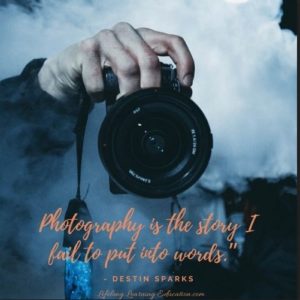
IN A NUTSHELL:
It is not widely known that a handful of prisoners in the Nazi death camps managed somehow to take clandestine photographs of the horrific atrocities that were being hidden from the world. Director Christophe Cognet retraces the footsteps of these courageous men and women in a quest to unearth the circumstances and the stories behind their photographs.
As the French documentarian walks through the soggy grounds of a concentration camp, small white shards poke through the earth. They are bone fragments of the dead that rise to the surface when it rains. Similarly, this film reveals hidden remnants of those horrors. At the risk of death, a handful of prisoners secretly photographed the workings of the camps and, in one case, buried the footage with the intention of recovering it after the war – which he miraculously did. The filmmaker and camp historians study these messages from beyond, and, with meticulous rigor, reconstruct the time and place at which they were originally created and the events they record.
FROM WHERE THEY STOOD premiered at the 2021 Berlin Film Festival, was featured at a New York Film Festival, and won a documentary prize at the Jerusalem Film Festival.
I’ve never seen a documentary quite like this one. It is a testament to the courage of prisoners who wanted to document the truth so that we could learn and never repeat history.
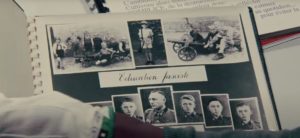
THINGS I LIKED:
- The director does a good job of layering photographs over what we see today at various concentration camps. You feel like you’re looking over the shoulder of researchers as they study old photos and walk around concentration camps to match locations.
- The first part of the film features photos that were taken in Dachau, Germany, a concentration camp I visited when I was in college during a Study Abroad trip I took with my university. It was a grim experience that had a tremendous impact on me. I’ll never forget what I saw or felt there.
- You don’t hear a sound for the first 4 minutes. In fact, much of the film is silent while you look at photographs. At first, I was surprised there wasn’t some kind of a musical score, but then I realized it was exactly like my own experience visiting a concentration camp. While all of us college students walked through the camp, no one spoke a word. There were no words that could ever sufficiently describe how we were feeling, nor what we were seeing. Silence is powerful.
- At the beginning of the documentary, we hear the rain and watch it flood onto the earth where we see bone fragments from Holocaust victims that were cremated and buried in shallow trenches. When it rains, the bones float up to the top of the surface.
- It was fascinating and heartbreaking to learn about the “rabbits” in the concentration camps. They were the guinea pigs that the Nazis did experiments on. We also learn that some female prisoners were forced to serve in the brothel building at the concentration camps.
- The first series of photos we see are fairly “mild”, showing people standing or sitting around the camps. The last part of the film takes a devasting turn by showing us dozens of dead, naked bodies on the ground and in heaps, the true reality of the what the evil Nazis did to the Jews during the Holocaust.
- Many of the photos are horrifying. All of them are haunting.
THINGS I DIDN’T LIKE:
- The film is extremely straightforward with no musical score or narration. It would have been nice to hear a narrator give us some history of each of the concentration camps where we see the researchers walking around and examining photos. Instead, we see title cards give us very short explanations.
- The man that handles delicate photographs (the negatives) wears only one glove to protect them. Why not two?
- There’s a lot of walking around and looking at photographs. Some viewers might get bored.
- One thing that caught my attention was how beautiful the natural settings were around the concentration camps. I always imagined the camps to be grey and horrifying. The prisoners must have found some moments of peace and hope by looking at the colorful fall leaves, smelling the spring blossoms, and listening to the sweet birds sing.
- Sometimes, it’s hard to see in the photos what the experts are seeing.
- There is a lot of shaky cam at the beginning of the film. After that, the camera looks more steady.

TIPS FOR PARENTS:
- Kids will be very bored. So will some adults.
- German and French are spoken. Sometimes we see subtitles written on the screen but it’s not always word-for-word.
- You see full-frontal female nudity as the women undress to walk to the gas chamber, thinking they were going to the showers.
- You see piles of dead bodies.
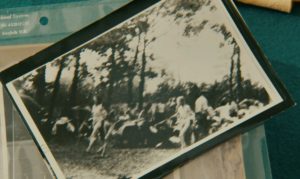
THEMES:
- World War II
- Nazi concentration camps
- Holocaust victims
- Courage
- The power of photography
- Truth
- What evil looks like
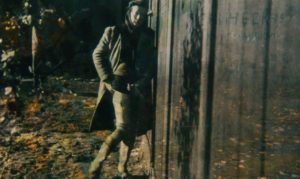
FUNNY LINES:
None. The subject of this documentary, the Holocaust, is a very serious one and truly heartbreaking.
INTERESTING LINES:
* If we could recognize someone, if we could identify one of these women, this picture would be impossible to look at.” – researcher

OTHER MOVIES LIKE THIS YOU MIGHT ENJOY:
- To What Remains: https://moviereviewmom.com/to-what-remains-movie-review/

WATCH THE Movie Review Mom YOUTUBE REVIEW WITH THIS LINK:
Coming soon!
 @MovieReviewMom @TrinaBoice
@MovieReviewMom @TrinaBoice
Thank you so much for your financial support on Patreon!
Be sure to check out all of the gifts you can receive when you donate to Movie Review Mom on Patreon!
https://www.patreon.com/m/MovieReviewMom




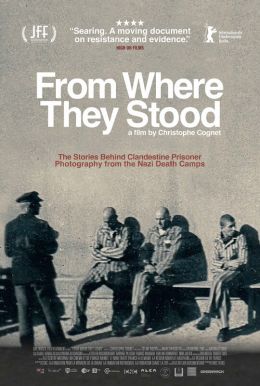
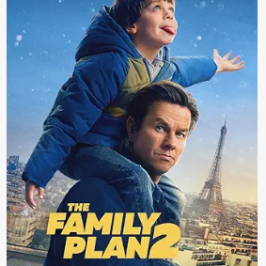
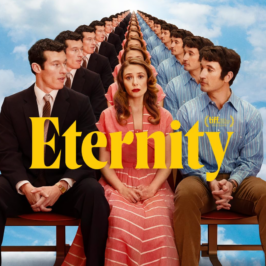
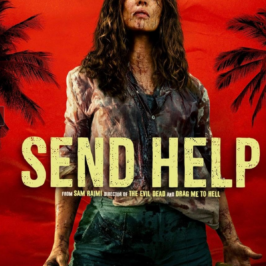
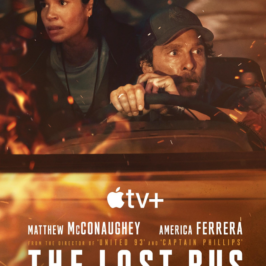
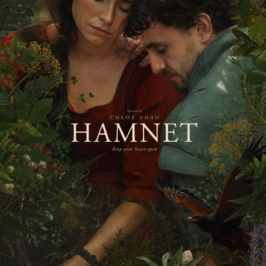
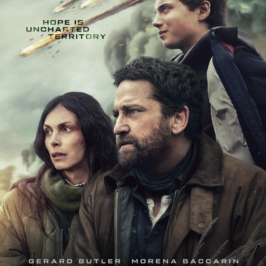
New contest announced!
It’s time for another fun contest with prizes! Every month, everyone who posts a comment...